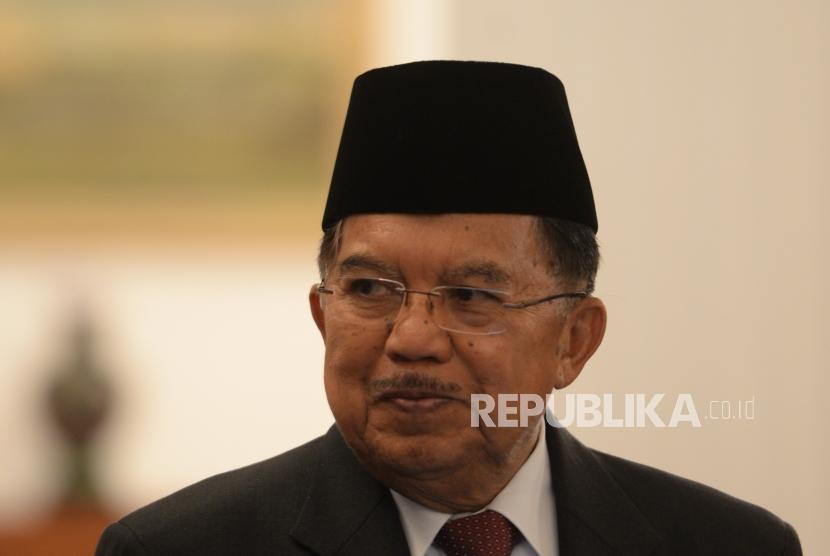REPUBLIKA.CO.ID, MAKASSAR -- Vice President Jusuf Kalla stressed that religion is not a source of conflict and violence. Nevertheless, he admitted in some occasions, religion is used by a handful of people to justify conflict and violence.
"It is often proven that perpetrators of violence in the name of religion are not people or groups with strict religious guardianship. A lot of them do not fully understand religion in the correct way," he stated during the speech of the award of Honorary Doctor in the field of Religious Sociology from Alauddin National Islamic University in Makassar, South Sulawesi, on Thursday.
The Honorary Doctorate degree was also given at the open extraordinary senate hearing, joined by the Minister of Religious Affairs Lukman Hakim Syaefudin and Governor of S Sulawesi Syahrul Yasin Limpo, as well as all rectors of the National Islamic Universities of Indonesia.
During the seminar, themed 'Peace Study: Perspectives of Religion, Economy and Politics,' Kalla explained further that there are indeed groups that are bearing the name of religion in carrying out violence and terrorism acts in a number of countries, including Indonesia.
However, people or groups as such do not represent the religious community as a whole, he added. "For that reason, I believe that religion is not a source of conflict and violence. All religions stress on teachings of peace and serenity," he remarked.
Furthermore, Kalla noted that building peace is an 'art' through perseverance, persistence, and expertise. Factors that cause conflict, violence, and war combine with one another and cause disruption to peace and harmony within a country or a specific region.
"The religion factor often comes afterwards as justification for the conflict and violence that had happened previously," he explained.
He then affirmed that Indonesia should be thankful for the tradition of harmony and peace, which had become the distinct qualities of the country for such a long time, despite its vast diversity. He also reminded that various scientific and academic studies had concluded that conflict, violence, and war are strongly related to economic issues.
Experiments conducted by many experts have asserted that instability and economic injustice among the elements of the public are some of the main causes of conflicts and violence. People or groups who suffer from economic imbalance and injustice, he said, are among the most vulnerable groups involved in the spread of radicalism, which can result in conflict and violence.
"Peace and harmony face serious challenges if there are still many unemployed and poor people, or groups that are unable to meet their basic daily needs," he concluded.


